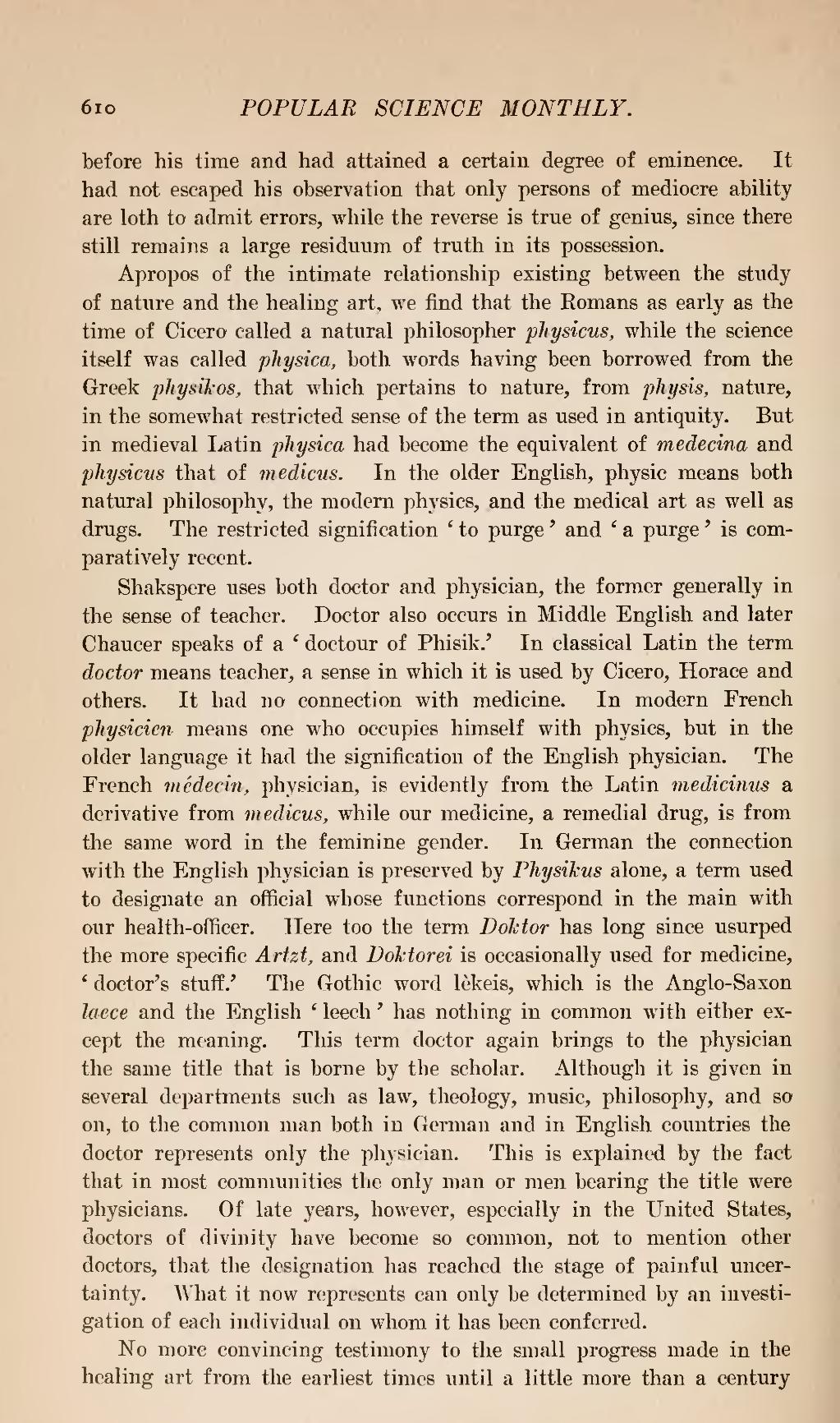before his time and had attained a certain degree of eminence. It had not escaped his observation that only persons of mediocre ability are loth to admit errors, while the reverse is true of genius, since there still remains a large residuum of truth in its possession.
Apropos of the intimate relationship existing between the study of nature and the healing art, we find that the Romans as early as the time of Cicero called a natural philosopher physicus, while the science itself was called physica, both words having been borrowed from the Greek physikos, that which pertains to nature, from physis, nature, in the somewhat restricted sense of the term as used in antiquity. But in medieval Latin physica had become the equivalent of medecina and physicus that of medicus. In the older English, physic means both natural philosophy, the modern physics, and the medical art as well as drugs. The restricted signification 'to purge' and 'a purge' is comparatively recent.
Shakspere uses both doctor and physician, the former generally in the sense of teacher. Doctor also occurs in Middle English and later Chaucer speaks of a 'doctour of Phisik.' In classical Latin the term doctor means teacher, a sense in which it is used by Cicero, Horace and others. It had no connection with medicine. In modern French physicien means one who occupies himself with physics, but in the older language it had the signification of the English physician. The French médecin, physician, is evidently from the Latin medicinus a derivative from medicus, while our medicine, a remedial drug, is from the same word in the feminine gender. In German the connection with the English physician is preserved by Physikus alone, a term used to designate an official whose functions correspond in the main with our health-officer. Here too the term Doktor has long since usurped the more specific Artzt, and Doktorei is occasionally used for medicine, 'doctor's stuff.' The Gothic word lèkeis, which is the Anglo-Saxon laece and the English 'leech' has nothing in common with either except the meaning. This term doctor again brings to the physician the same title that is borne by the scholar. Although it is given in several departments such as law, theology, music, philosophy, and so on, to the common man both in German and in English countries the doctor represents only the physician. This is explained by the fact that in most communities the only man or men bearing the title were physicians. Of late years, however, especially in the United States, doctors of divinity have become so common, not to mention other doctors, that the designation has reached the stage of painful uncertainty. What it now represents can only be determined by an investigation of each individual on whom it has been conferred.
No more convincing testimony to the small progress made in the healing art from the earliest times until a little more than a century
